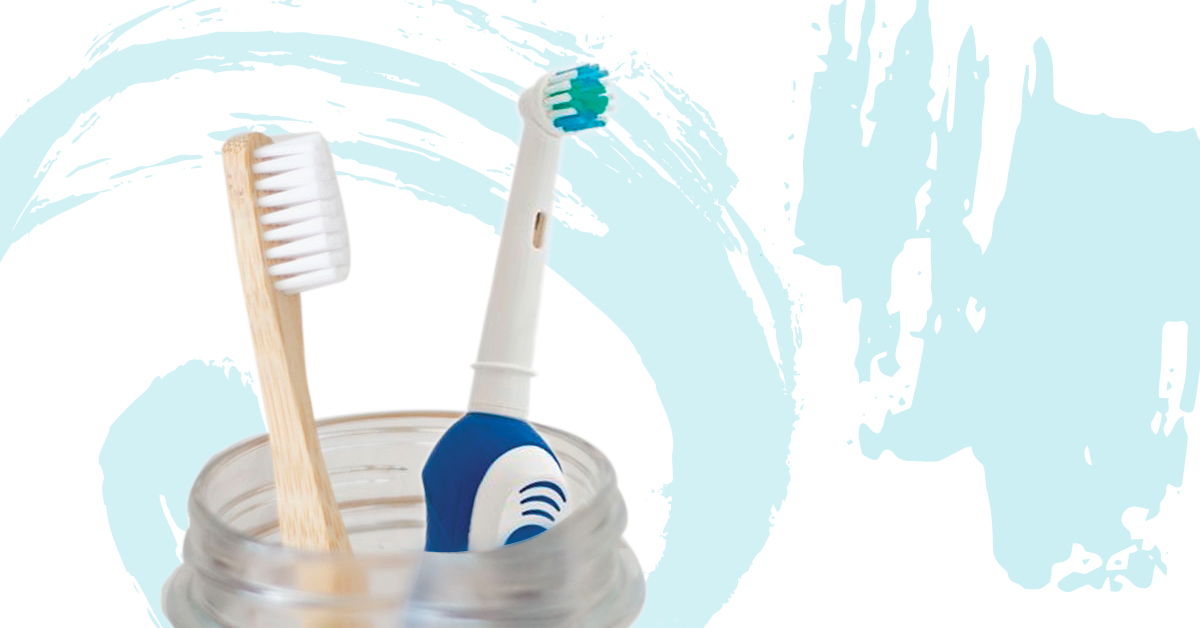Manual or electric? The best toothbrush for your child

When it comes to brushing teeth, it’s best to start ‘em young! Whether they end up using a manual or electric brush down the track, every good beginner dental routine starts by selecting a toothbrush that’s suitable for a young child just starting out.
Of course if you’ve ever walked down the dental care aisle at a supermarket you’ll know there’s quite the variety of brushes to choose from. Naturally picking up the most colourful, vibrant one seems like the obvious choice to help encourage brushing for your little one. But before you go out and buy the sparkliest toothbrush you can find, have a quick read of this guide first.
SIZE AND BRISTLE TYPE MATTERS
Simply put, small mouths require small brushes. That’s why the best starter toothbrush for any child should be one with a smaller head that covers the surface area of the tooth.
You can re-evaluate as your little one’s mouth gets bigger, but generally a small headed brush should last them up until ages five or six (don’t forget they still need to be replaced every three months). Most brush manufacturers will also suggest the recommended ages on their products to make it easier for parents to know what size is standard for their child.
Most importantly when choosing a brush you need to always get one with soft bristles. These are much better on the teeth enamel and gums, especially for kids who may not have the most gentle brushing technique.
After all, anything with medium to hard bristles is really only good for cleaning bird poop off your windows!
MANUAL VERSUS ELECTRIC
It’s fairly well known by now that electric toothbrushes do a better job overall at cleaning teeth. That being said, it’s important if you do choose to go down the electric route you don’t introduce it too early on.
Remember a child as young as two or three isn’t going to know how to use an electric toothbrush, so getting one at that age isn’t necessary. Once they reach four or five and are more comfortable with their brushing routine, the novelty of an electric toothbrush may start to kick in.
While for parents the introduction of an electric brush means an easier and more efficient clean, for kids it adds a layer of excitement, especially now with all the extra bells and whistles that you can get. Because of course there’s nothing cooler than a toothbrush that’s got their favourite Disney character on it, who sings a song and flashes lights while in use. If your child loves this kind of thing, these brushes can become a fantastic tool for encouraging regular, two-minute long brushing.
If you and your child do decide that it’s time for an electric toothbrush, don’t feel the pressure to buy the most expensive thing on the market. All you need is a unit with a small, oscillating head (not one that just vibrates) and soft bristles. You can find these easily in your local supermarket, and often you’ll be able to snag the handle plus the head refills in a sale.
THINK ABOUT WHAT WORKS FOR BOTH OF YOU
You might not realise but your child’s toothbrush has to be easy for you to use too! That’s because they’ll still need your help brushing their teeth up until the age of seven or eight – usually around the time they start tying their own shoelaces!
No matter if you choose a manual or electric toothbrush, it’s best to go with whatever is more comfortable for your child, especially when they’re fairly young and don’t have the capacity to give you verbal feedback. If that means sticking with a soft non-electric brush, then let them keep going with that. The most important thing is ensuring they are brushing well and consistently.
Of course during your first dental visit your pediatric specialist will answer any questions you have about toothbrushes, as well as show you exactly how to help your little one brush their teeth so that their oral health is well looked after.
To book your child’s next – or first – dental appointment, click here.
This article is intended to promote understanding of and knowledge about general oral health topics and to help begin the conversation with your children’s dentist. It should not be used as a substitute for professional advice, diagnosis or treatment. Always seek the advice of your health care professional prior to incorporating this as part of your child’s diet or health regimen.

